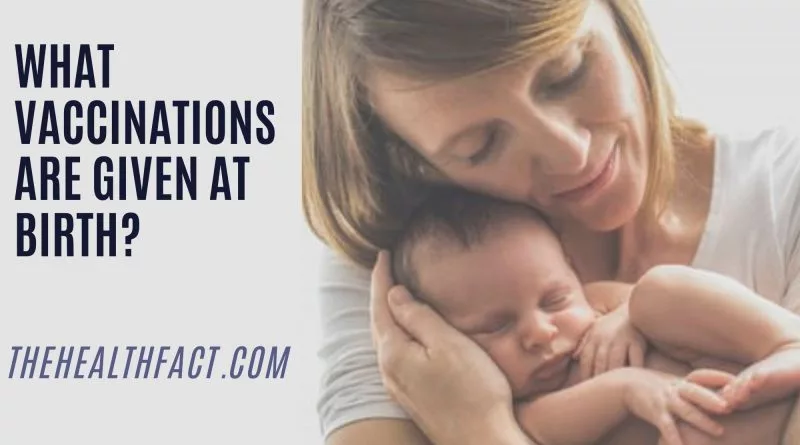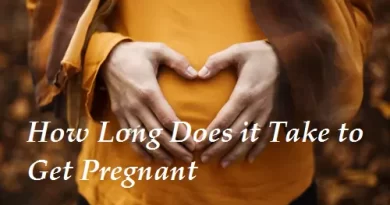What Vaccinations Are Given at Birth: A Full Guide For New Moms
Vaccinations are a great way of developing high immunity to diseases for your kid. However, it doesn’t mean that your kid won’t get the disease but he will handle the pathogen smoothly if is vaccinated well. On the other side, some diseases are almost gone such as smallpox and polio in humans, and the next targeting diseases are malaria and dracunculiasis, etc. So, in this article, we will discuss which are given at birth. So, what vaccinations are given at birth? Make sure you complete all shots of vaccines for your kid.
Table of Contents
What do vaccinations do in babies?
Vaccines work by making antibodies in the baby’s body before the contraction of the actual pathogen. Vaccinations are themselves made by partially killed pathogens. Hence, create a primary response of pathogen-human interaction and process antibodies production. So that when the actual pathogen comes in contact, the body will recognize and work against it.
Intriguingly the mother also passes some antibodies to the baby before birth through the placenta. And after birth, breastfeeding will transfer antibodies to the baby’s gut. But both the situations are temporary and the protection is limited. سباق الخيل Although, they are also important for a child. Immunization is necessary to make the child’s body able to fight off common and uncommon diseases.
Also read: can you get vaccinated while breastfeeding
When antibodies from the mother provide innate immunity and provide protection to the baby, vaccinations accelerate the immune system. Vaccinations for babies include vaccines for measles, hepatitis, tuberculosis, pneumococcus, etc. we will discuss 14 vaccinations for babies that you should know. As we know that these diseases aren’t fatal at present because of a large population being vaccinated with them.
Now we don’t hear about an outbreak of measles, chickenpox, smallpox, tuberculosis, pneumonia, why? Because people have developed a high resistance to them and their immune systems are capable enough to fight them off.
Here I will talk about 14 vaccines that are a must for babies to get after birth to 6 years of age. Every parent should know what vaccines are mandatory for babies to get.
What vaccinations are given at birth?
Polio
Polio is a threatening and serious disease caused by the poliovirus which tends to affect the spinal cord, brain, and mobility of the person. The virus is communicable. Although it has been eliminated from a few countries such as India and the United States by vaccination, it’s still a big threat to some countries and places. A complete administration of all doses of the polio vaccine is mandatory for all infants and kids to get free of this crippling virus.
Dose:- as per the doctor’s recommendations your child needs four doses of vaccinations each in the ages of 1-2 months, 4 months, 12-23 months then 4-6 years.
Influenza/ flu
Influenza virus causes respiratory issues which then affect the nose, throat, and lungs. There are various types of influenza viruses that are responsible for causing illness. An outbreak of flu affects people differently based on their age, health, and immunity. Most children are affected by the influenza virus of any age. Flu shows symptoms in children like cough, fever, fatigue, aches, and diarrhea. A large number of children are hospitalized in the USA and die from flu complications. A report from CDC says that flu-related hospitalizations of children younger than 5 years are in a range from 7,000-26000 since 2010 in the United States.
Most of the infants 6 months old may end up in hospital if the mother isn’t vaccinated for the flu properly. A child is too young to get a flu vaccine at 6 months. Hence, it would be best if the mother takes a flu vaccine during her pregnancy to escape the baby from deadly flu.
Dose:- as per the doctor’s recommendations a child should get influenza/ flu vaccine every year starting from 6 months( age). Children who are getting it for the first time and are younger than 9 years need two doses of vaccine at an interval of 28 days.
Also read: tips for newborn baby care
Tetanus
Tetanus is caused due to the bacterium clostridium tetani. The spores of tetanus are available everywhere around us and get developed into bacterias when they enter a host. Tetanus symptoms are pain and stiff muscles, lockjaw. Most of the time the infection happens while we get a scratch, poked, or get a cut from metal. Therefore, nowadays tetanus vaccine is a part of vaccination called DTaP, which protects against diphtheria, tetanus, and pertussis, or whooping cough.
Dose:- as per the doctor’s recommendations a child needs five doses of the DTap for an effective result. Thus, get your child vaccinated with each dose at ages: 1-2 months, 4 months, 6 months, 12-23 months, and 4-6 years.
Hepatitis A
Hepatitis is a liver infection caused by hepatitis virus A. It’s a contagious disease transmitted from person to person or through contaminated commodities like food or water. Symptoms include abdominal pain, nausea, vomiting, and a low-grade fever. The vaccine for hepatitis was developed in 1995 and has effectively cut the number of cases in the US.
Hence, again a vaccine is good to keep the baby away from such desperate infections.
Dose:- as per the doctor’s recommendations your child should get two doses of hepatitis A vaccine each at the ages: 12-23 months and 6 months.
Hepatitis B
When hepatitis A is transmitted through contaminated items, hepatitis B is transmitted through bodily fluids such as blood, semen, or other body fluids to the uninfected person. It may pass from the mother to the child during birth. That is why all pregnant women should get tested for the infection and vaccinated simultaneously.
Nine out of 10 babies get the infection from the mother and get severely ill, which is why babies should get the hepatitis vaccine shortly soon after birth.
Dose: as per the doctor’s recommendations your child should get three doses of hepatitis B vaccine shots for prevention. First dose shortly after the birth and then at the age of 1-2 months, and 6 months.
Measles
Measles is an acute viral respiratory illness caused by the genus morbillivirus (family: Paramyxoviridae). This virus affects only humans. Children are the primary host of this contagious virus. The pathogen enters through airborne droplets of the infected individual. The infection can be recognized by the symptoms of having rashes, running nose, fever, cough and can bring big complications including infection of the middle ear, lungs, and brain.
The vaccine given for measles is called MMR which stands for measles-mumps-rubella. Three of them are airborne infections and primary symptoms are similar but can cause severe complications in the long term.
Dose: as per the doctor’s recommendation MMR is given in two doses. The first dose is given at the age of 12-15 months of age and the second dose is typically given at 4-6 years of age. كيفية لعب البوكر
Varicella (chickenpox)
Chickenpox is one of the common illnesses affecting children. It is caused by a causative agent varicella-zoster virus. This viral illness is highly communicable and can affect people who have never been exposed to the virus or been vaccinated. The notable symptoms include fever, a sore throat, itchy rashes filled with watery blisters which later form scabs over them.
This illness is curable but may have certain complications like bacterial skin infection, pneumonia, and inflammation of the brain which is rare.
Dose: as per the doctor’s recommendation this vaccine should be given in two doses. The first dose is at the age of 12-18 months, and the second dose is at 4-6 years of age.
Pneumonia
Pneumonia is a serious bacterial respiratory illness characterized by inflamed air sacs either in one or both lungs and may fill with fluid. The causative agent is streptococcus pneumonia. The disease is more common in children younger than 5 years. Before the vaccine was routinely administered, there was a large population dealing with pneumonia including children and adults which was quite high which also included deaths.
Dose: as per the doctor’s recommendations pneumococcal vaccine should be given at four doses at the age of 2 months, 4 months, 6 months, 12-15 months.
Whooping cough (pertussis)
Whooping cough or pertussis is a contagious respiratory illness caused by the bacterial pathogen Bordetella pertussis. By attaching to the upper ciliary part of the respiratory tract they cause inception and intense cough. As it is a respiratory illness, it is highly contagious. The violent coughing makes it difficult for babies to breathe properly and sometimes is life-threatening.
Therefore the mother needs to receive a vaccine for whooping cough during her pregnancy to pass on the protection to her child before birth.
The vaccine is a combined vaccine for three illnesses and is called DTaP protects against diphtheria, tetanus, and pertussis.
Dose: as per the doctor’s recommendation a child should get five doses of DTaP. each dose on the respective ages of 1-2 months, 4 months, 6 months, 12-23 months, and 4-6 years.
Rubella
It’s also a respiratory illness caused by a virus and is contagious enough to infect the other person. It is highly dangerous for the pregnant woman and her developing baby. If a mother gets infected and is not vaccinated for rubella, she can pass the disease to the child. Which sometimes tens to birth defects or even miscarriage.
Thus, make sure the mother is vaccinated for the virus, so the child after birth.
The vaccine for rubella is MMR which protects against three diseases including measles and mumps.
Dose: as per the doctor’s recommendation, the rubella virus should be given in two doses. The first dose is given at age of 12-23 months and the second in 4-6 years.
Mumps
Mumps is still a threat today and many individuals in the United States get this. The responsible causative agent is of the family paramyxoviruses. The virus affects children more commonly. Mumps can be diagnosed by puffy cheeks, swollen jaws, fever, pain in muscles, and head with fatigue. However, mump are curable with the proper vaccination of the mother and the child after birth.
The disease is spreadable by close contact with an infected person. MMR vaccine is given for mumps.
Dose: as per the doctor’s recommendations, the child should get two doses of MMR. The first dose is given at the age of 12-23 and then 4-6 years.
Diphtheria
It is one of the respiratory diseases caused by the pathogenic corynebacterium diphtheriae. The bacteria release some toxins which when exhaled to someone by an infected person can make the other person sick.
In the long term, diphtheria can lead to various complications in breathing and swallowing. DTap vaccine is given for the disease which also protects against tetanus and pertussis.
Dose: as per the doctor’s recommendation, the child should get five doses of the DTaP vaccine. Starting with the age of 1-2 months, 4 months, 6 months, 12-23 months, and 4-6 years.
Rotavirus
Rotavirus is a communicable oral-fecal route infection that leads to chronic watery diarrhea with vomiting, abdominal pain. The infection is more likely to occur in infants and children. Consequently, the child gets severely dehydrated and has to be hospitalized. Rotavirus vaccine is best for preventing such life-threatening conditions.
Dose: as per the doctor’s recommendation the child should get two three doses of rotavirus each at the age of 1-2 months, 4 months, 6 months.
Hib
This is another respiratory illness caused by Haemophilus influenza. The infection happens when the infected person coughs or sneezes close to the uninfected one. If the person itself is not sick can transfer the disease to kids or vulnerable people.
Severe complications include brain damage and deafness.
Dose: as per the doctor’s recommendation, a child should get four doses of the Hib vaccine. Each dose at the age of 1-2 months, 4 months, 6 months, and 12-23 months.
Have you realized how many vaccines do babies get after birth and how many times? Talk with your health provider about what vaccines you need to take during pregnancy to provide passive immunity to your child.
These are the vaccinations for babies that are necessary after birth and work throughout life by making antibodies to particular diseases.
Conclusion
What vaccinations are given at birth or what vaccines are mandatory for babies is a very important topic for all pregnant women and new moms? Vaccinations are not only important for babies but mothers too. Thus, make sure you schedule vaccines for yourself during pregnancy and for babies after birth.



